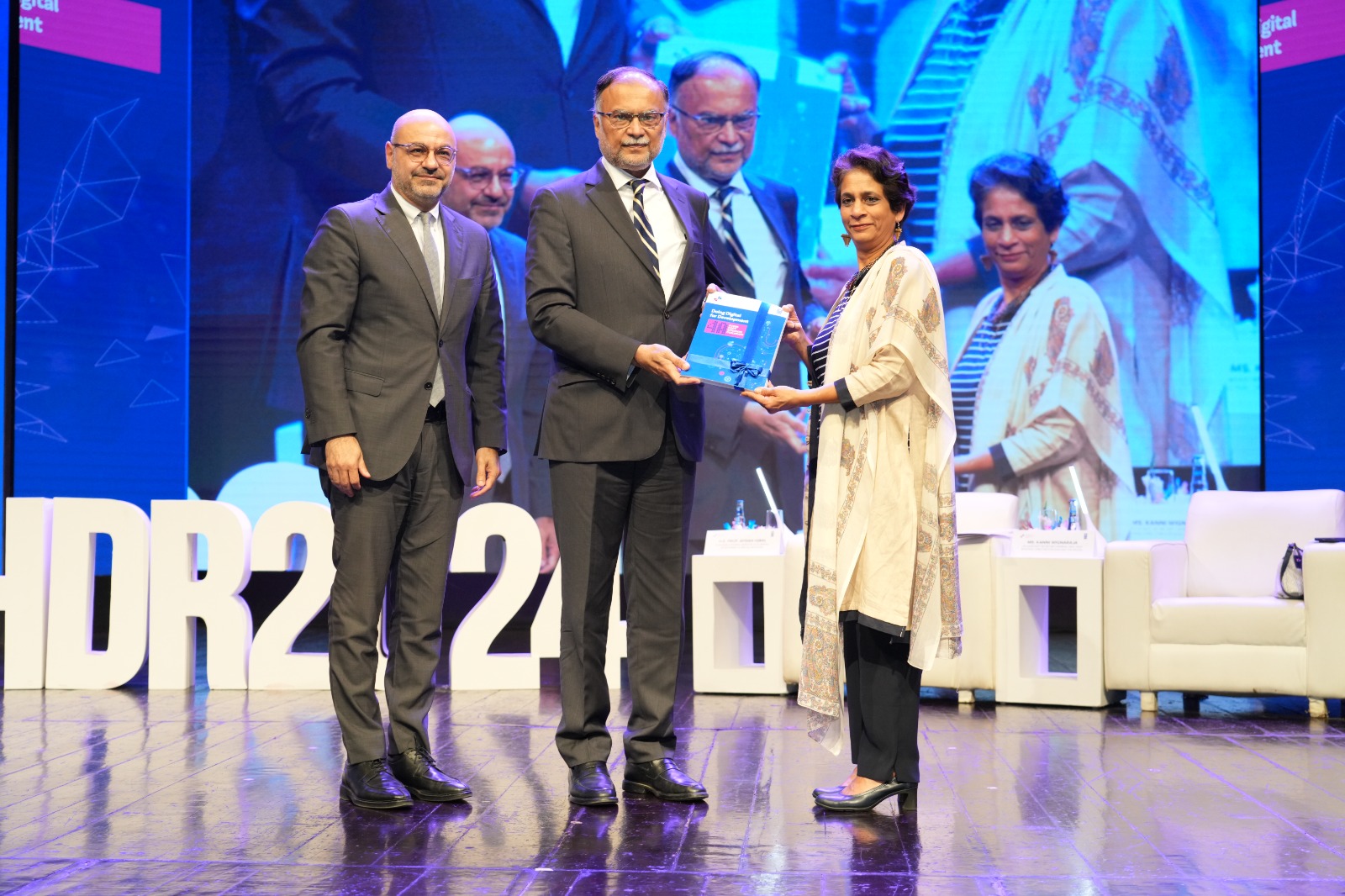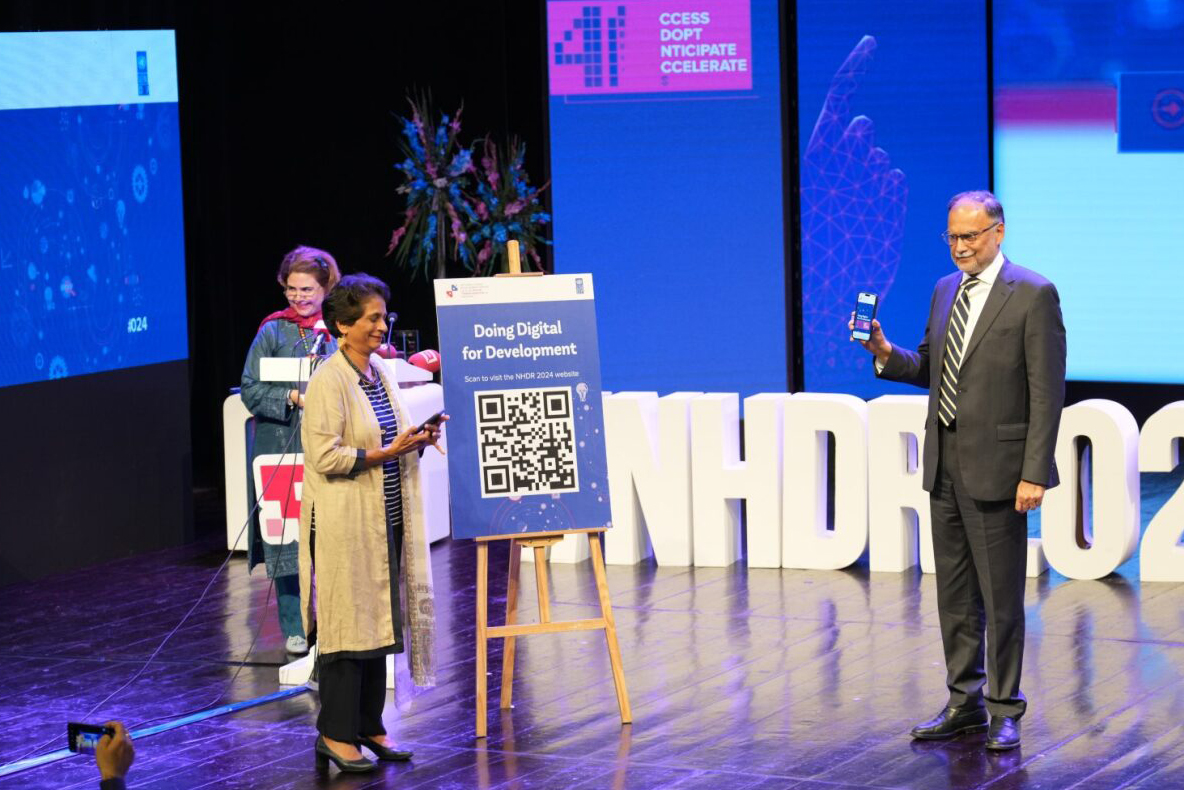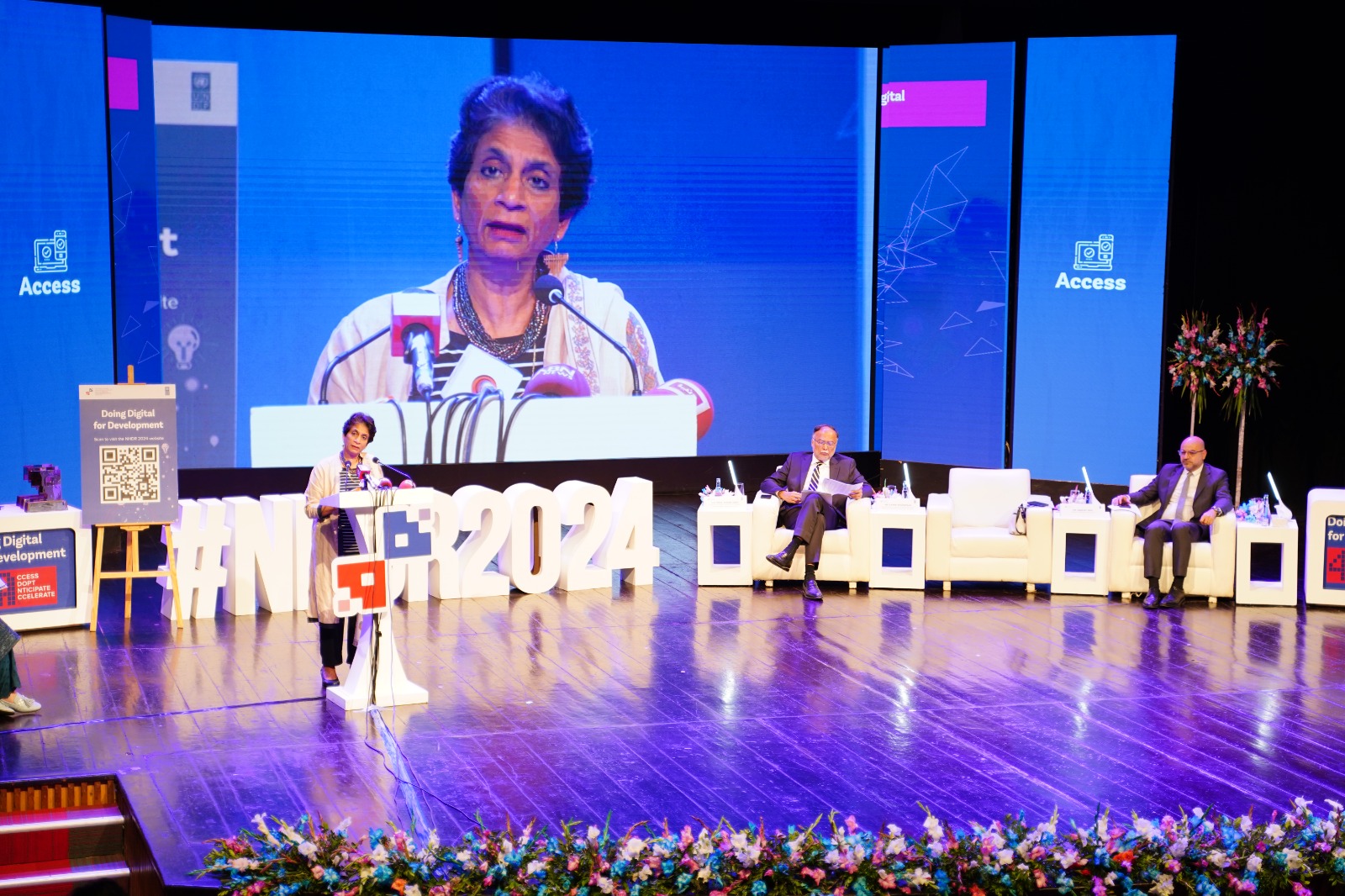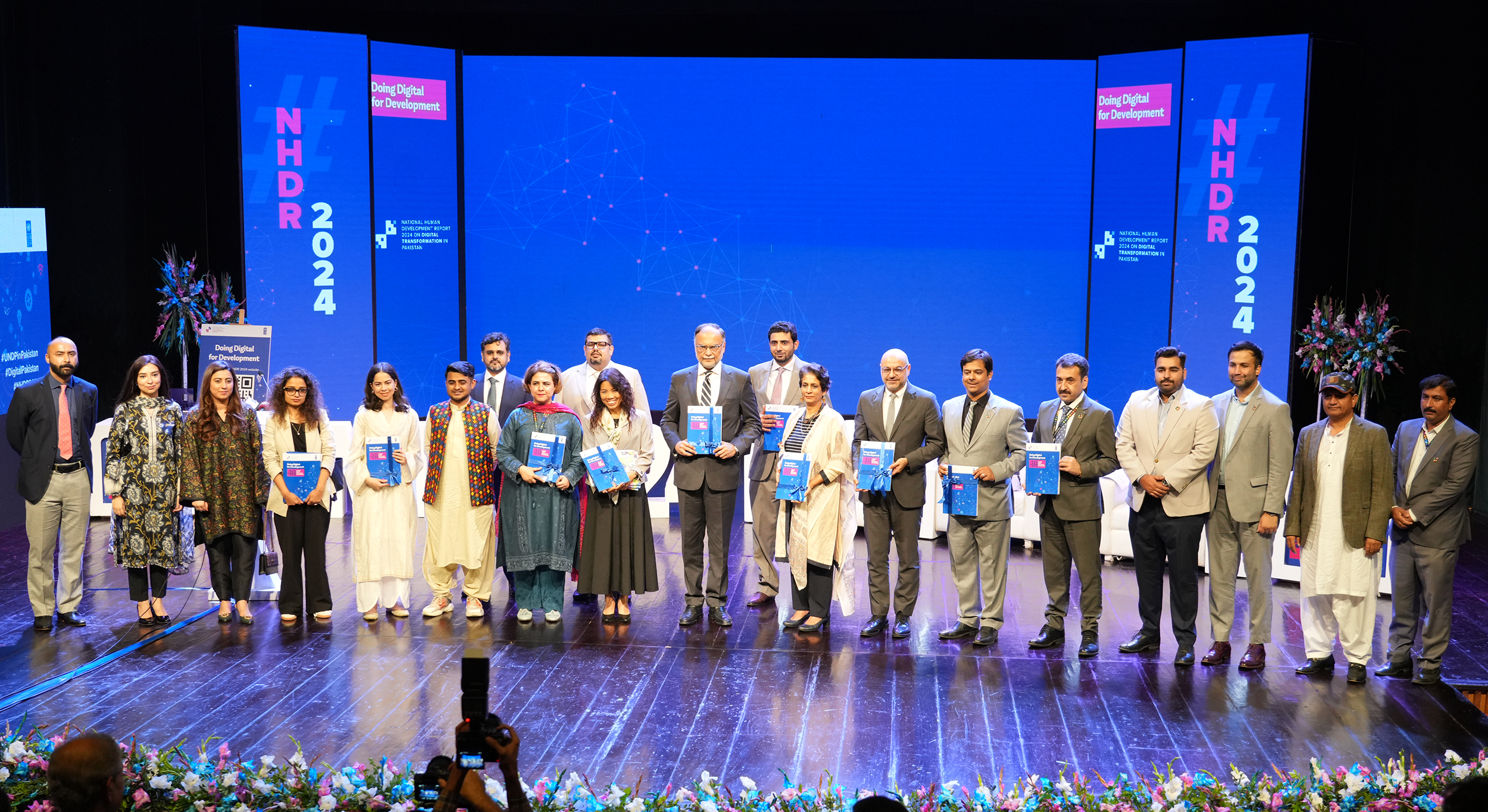UNDP's pioneering Digital Development Index for Pakistan finds that districts performing better on digital transformation are also performing better on human development
April 24, 2024

- The Pakistan National Human Development Report 2023/2024 on ‘Doing Digital for Development’ places Pakistan in the ‘moderate’ digital development category.
- Almost half of Pakistan’s districts have low digital development rankings. Islamabad is the country’s only district with ‘very high’ digital development; followed by Karachi, Lahore, Rawalpindi, Peshawar, Haripur, and Abbottabad achieving ‘high’ digital development.
- Digital development in Pakistan’s richest quintile is fifteen times greater than that in the poorest quintile, meaning that wealth is a huge marker of digital development.
- Women are underserved by digital development. A striking 83.5 per cent of women report that their spouse or parents dictate their phone ownership.
Islamabad, 23 April 2023: Pakistan’s first-ever Digital Development Index (DDI) measures digital development progress across Pakistan’s provinces and districts, placing the country in the ‘moderate’ digital development category with a cumulative DDI of 0.205, in the Pakistan National Human Development Report (NHDR) 2023/2024 ‘Doing Digital for Development: Access, Adopt, Anticipate, Accelerate’ launched here today.
The Report shows a strong correlation between districts that perform better on digital transformation and those that have higher human development outcomes. For the first time in Pakistan, the NHDR 2023/2024 evaluates access to digital technologies in combination with other factors like digital usage, digital skills attainment, and transformative potential in the form of the DDI, which underscores how some districts have the highest transformative potential due to their high digital development.
According to the global Human Development Report, Pakistan has a low Human Development Index rank of 164 out of 193 countries, coupled with a Gender Inequality Index position of 135 out of 166 countries. Digital divides further exacerbate poor development outcomes.
Federal Minister for Planning, Development & Special Initiatives, Ahsan Iqbal was the chief guest at the launch ceremony, which was also graced by visiting U.N. Assistant Secretary-General, UNDP Assistant Administrator and Regional Director Regional for Asia and the Pacific, Ms. Kanni Wignaraja. A large gathering of diplomats, dignitaries, policymakers, civil society, students, and other segments of society attended the event, which also featured an interactive exhibition of Pakistan’s digital evolution and journey since 1947.
Through exhaustive statistical analysis at national, provincial, and district levels, a nationally representative survey, and consultations conducted all over the country, the Pakistan NHDR 2023/2024 presents a dynamic digital transformation policy framework of 4 As – Access, Adopt, Anticipate, Accelerate – investments in which can become Pakistan’s fastest route to human development.

“The Government of Pakistan is committed to harnessing the benefits of technological innovation to improve livelihood prospects, accelerate financial inclusion, improve employment, and deliver efficient public services,” stated Federal Minister Ahsan Iqbal in his keynote address at the launch ceremony.

Earlier in her remarks, UNDP Regional Director for Asia and the Pacific, Ms. Kanni Wignaraja observed that just over 60 per cent of the population in Asia-Pacific is online, with women and marginalized groups significantly underrepresented. “Pakistan is the 6th largest contributor to the global middle-class growth between 2022 to 2030, contributing 25 million,” she said. “Targeted digital transformation efforts for this growing middle class could greatly improve the country's productivity.”
“By launching this Report, our ambition is to contribute to a future-oriented Pakistan where digital transformation becomes a hallmark of its inclusion, and a cornerstone for its prosperity,” said UNDP Pakistan Resident Representative, Dr. Samuel Rizk on the occasion.

The Report highlights that 54.3 per cent of the country does not have access to the internet because of inadequate digital infrastructure and affordability challenges. Almost half of Pakistan’s districts have low DDI rankings. Without equitable access to digital technology, Pakistan’s human development outcomes will remain low and under-served. With 87.35 million internet users and significant mobile connectivity, Pakistan's digital transformation opportunity presents an avenue for leapfrogging development barriers.
Media contacts:
For more information or to request an interview, contact:
In Islamabad: ramsha.nadeem@undp.org +92 51 835 5679
# # # # # # #
About UNDP
UNDP is the leading United Nations organization fighting to end the injustice of poverty, inequality, and climate change. Working with our broad network of experts and partners in 170 countries, we help nations to build integrated, lasting solutions for people and the planet. Learn more at undp.org or follow at @UNDP.

 Locations
Locations

